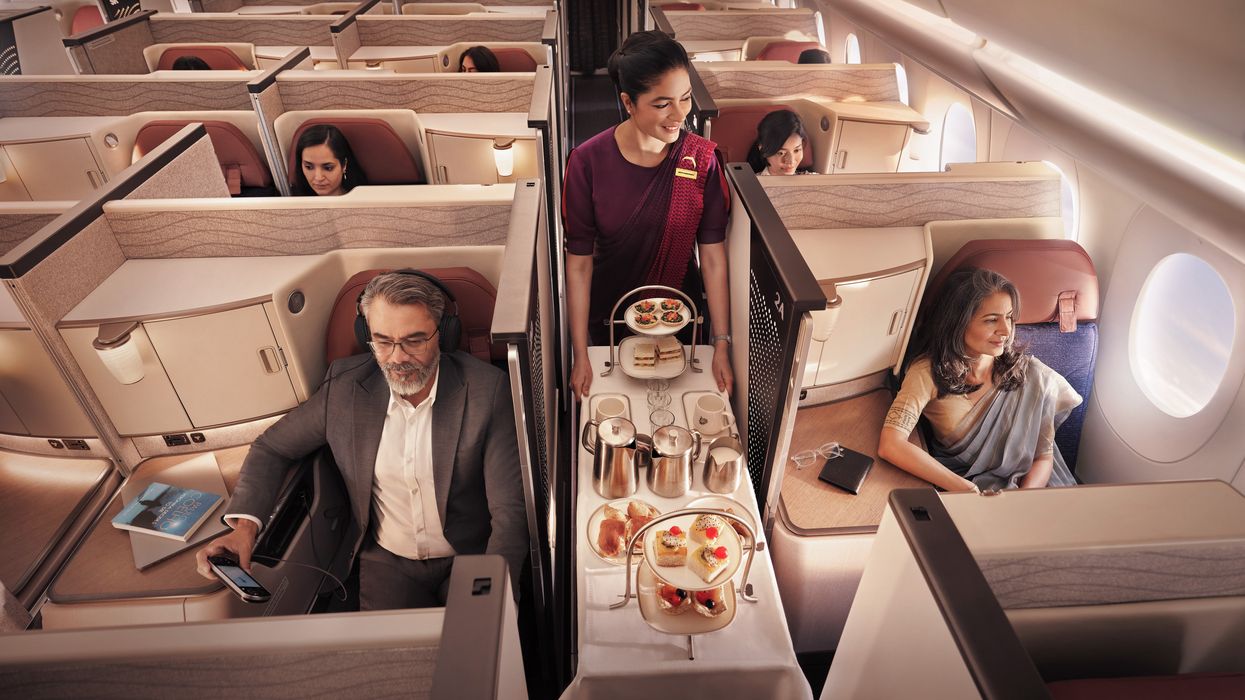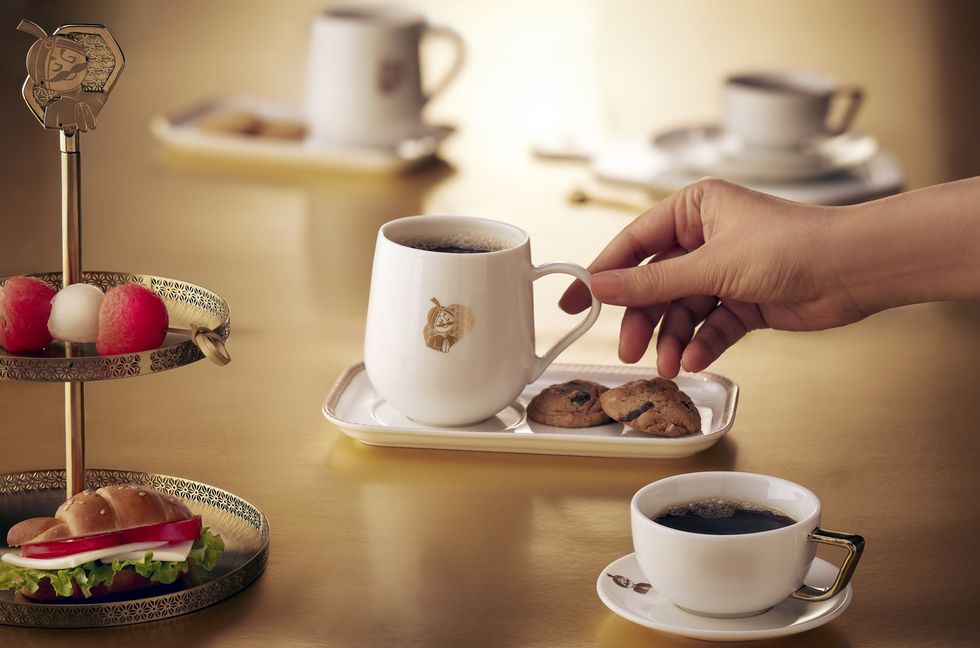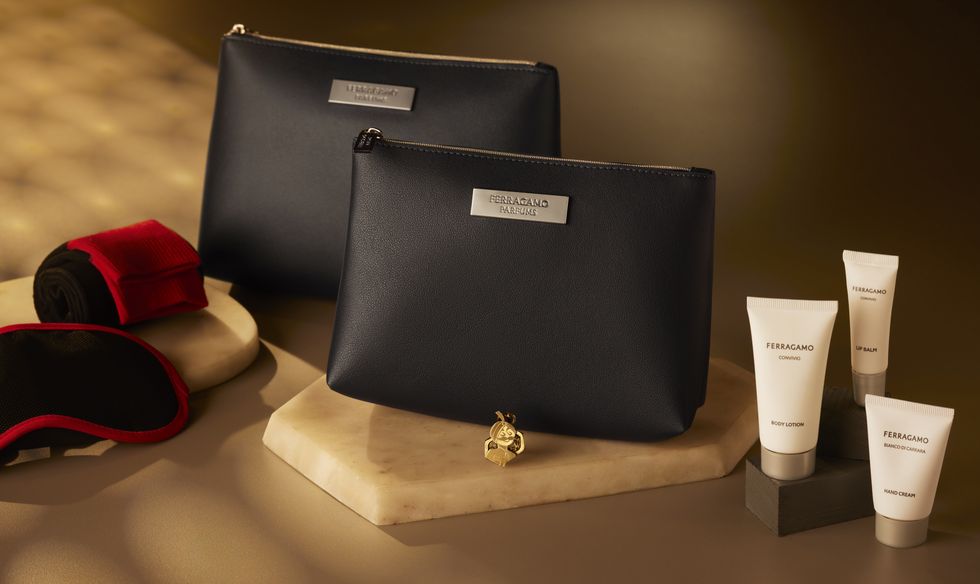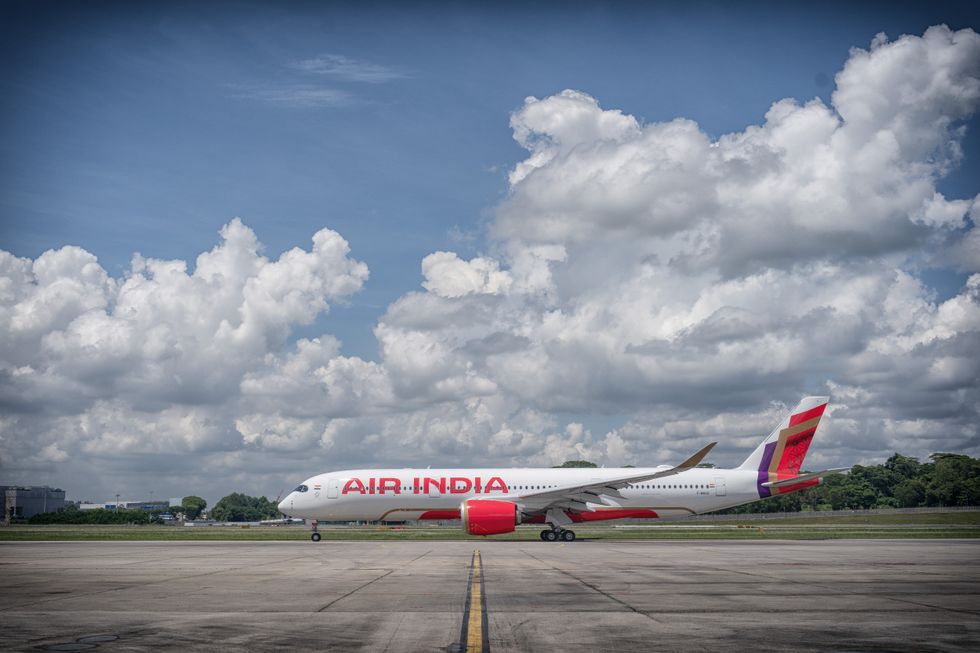THE recently signed Free Trade Agreement (FTA) between the UK and India means there will be even greater demand for Air India’s business class travel from Heathrow to Delhi and Mumbai.
But let me travel down memory lane for a little while.
I have on my table a little cup with the new Maharaja symbol. It’s the sort used to serve tea and coffee in business class. I assure readers it wasn’t pinched.
And in the kitchen I have one of Air India’s new salt and pepper dispensers designed in the shape of a traditional Indian tiffin box. That, too, I am happy to say, was gifted to me.
It is the Maharaja that takes me back many years to when I was 18 and had began to travel regularly on Air India. I still have some of the paper tickets which have become collectors’ items.
At university we had three eight-week terms and so I could spend pretty much six months of the year in Calcutta (now Kolkata). Instead of focusing on the laws of thermodynamics and quantum mechanics – I don’t recognise any of the maths in the books and files I have preserved – I worked alongside my late father on the English-language newspaper, the Amrita Bazar Patrika, where he happened to be the comment editor. Those were the days of hot metal.
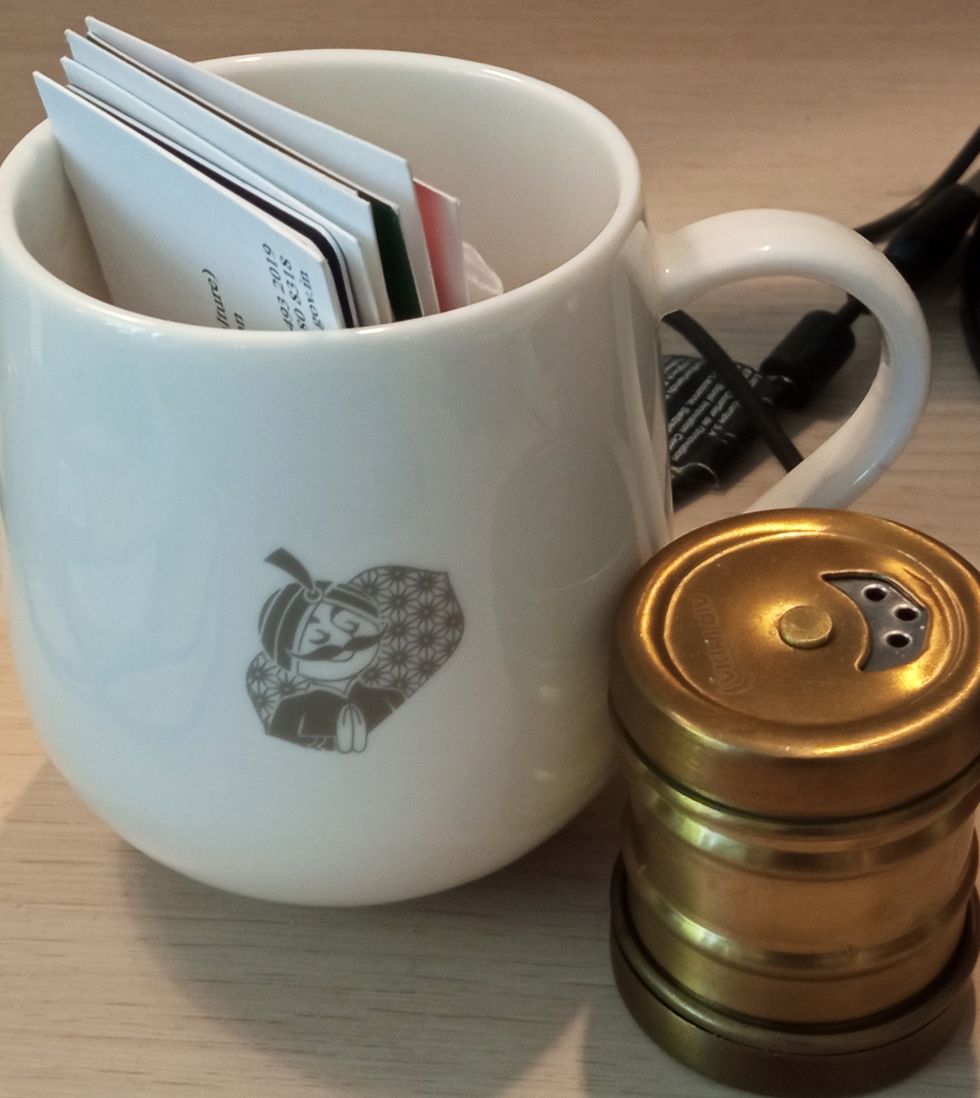
Those were also the days of the legendary Maneck Dalal, who brought class and style as Air India’s regional editor in the UK. He had an office in the Air India building in New Bond Street. In the summer term, he would load up his white Mercedes with bottles of champagne for a party he hosted for members of the university’s India Society.
His accounting department didn’t think it was a good idea to waste champagne on students but Dalal dismissed their objections.
“They are my future passengers,” he said. Dalal gave me a grey cabin case which I used for many years.
Those students, who had arrived in the UK from India, certainly used Air India when they returned home for summer or for Christmas and the New Year.
Dalal, who had been sent to London by JRD Tata to open Air India’s office in London, remembered Heathrow from the winter of 1948: “We had to trudge through slush and mud to get to the caravan and had oil heaters to keep us warm.
“It was a question of suffocating from the oil fumes or freezing of cold…London airport was a wide stretch of area with hardly any development – a large number of rabbits and hares could be seen jumping around. The only person who had the right to shoot them was the commandant of the airport.”

Air India’s inaugural flight on a Lockheed Constellation L-749, named Malabar Princess, took off from Bombay [now Mumbai] on June 8, 1948, just after midnight. On board were JRD Tata, the Jamsaheb of Nawanagar, and the industrialist Neville Wadia.
Dalal was at the airport to receive the flight and to see off the start of the return journey on June 10. He reflected the Air India ethos because he could win people over with effortless charm.
After he retired from the airline in 1977, he remained a director of Tata & Sons. He also became chairman of the Bharatiya Vidya Bhavan. His death at the age of 98 on March 6, 2017, brought back many memories.
Air India is now back “home” under Tata management, where I am pretty confident it will prosper. The airline has introduced the new A350 aircraft – it has six of them but the number is going to go up to 40.
On March 26, I flew one of the A350s from Heathrow to Delhi. I was entitled to two suitcases, each 25kg, but had only one weighing 17kg, even with presents for family and friends.
There is a dedicated check-in counter for business class passengers in Heathrow’s Terminal 2, the Queen’s Terminal. Adjacent to these counters is the priority security lane, providing quick and easy access to the Star Alliance network partner lounges. Perhaps Air India needs its own lounge with a tasteful Maharaja décor.
I noted that flight AI 162, supposed to take off at 8.45am, did take off precisely at 8.45am. Dalal would have been pleased. He would also have approved that in business class, at least, we were getting Maharaja service, though the symbol had been modernised to reflect the aspirations of India in 2025.
In the old days, I was more than happy to travel economy, but Dalal would often send word to his staff at Heathrow and I found myself upgraded for no good reason.
The configuration in business class is now quite different, with private suites for 28 passengers. Each seat also converts to a flat bed. This means you can sleep for three-five hours during a nine-hour flight,and attend meetings on the day of arrival. It wouldn’t take much for me to get spoilt.
Each suite “has a personal wardrobe and ample stowage space for electronic devices, amenities, and shoes, as well as a conveniently located mirror, catering to every traveller’s needs. A 21-inch HD touchscreen and video handset provide an immersive entertainment experience, while universal A/C and USB-A power outlets ensure mobile and electronic devices stay charged.
“Business class passengers receive locally-inspired amenities, including a set of loungewear made from blended cotton for extra softness and breathability; a pair of slippers in the shoe storage compartment; a Ferragamo amenity kit which includes Ferragamo body lotion, hand cream, lip balm, comfortable socks, a plush eye mask within a cotton bag embellished with a lotus mandala pattern, and a gold Maharaja charm; an intricately-patterned day blanket that can also be used as a shawl; a two-in-one mattress and pillow that can folded as a firm cushion or opened when making your bed; and a very plush and comfortable duvet.
“Air India’s new IFE system features over 3,500 hours of immersive entertainment content across formats and genres, including 1,250 hours of movies, 750 hours of TV, and 1,500 hours of audio.”
Since I am a fan of RK Narayan, I watched a dramatisation of his Malgudi stories.
It was nice to get a letter of welcome addressed to me personally from Campbell Wilson, Air India’s CEO and managing director. We had met when he was in London last year for the Farnborough Air Show.
“This aircraft is an embodiment of a transforming Air India, delivering a new experience for you and the nearly 120,000 travellers we fly every day,” his letter said.
“The champagne we serve on board, Laurent Perrier La Cuvée Brut, is crisp and refreshing – perfect for toasting this journey. I had the pleasure of joining the panel that selected it, and I hope you’ll raise a glass with me to celebrate Air India’s new chapter.
“Today’s inflight menu includes Scialatielli pasta served with piperade sauce and chargrilled baby courgette, and kundan kaliyan – succulent lamb in creamy saffron sauce served with rice, mixed lentils, and mint yogurt, both of which I’ve enjoyed during tastings.”
I chose the pasta. It was delicious.
His letter added: “You’ll also have access to WiFi on board, so you can stay connected if you choose. And, to help you rest, we’ve introduced luxury bedding, including a premium wool-blend blanket with a jacquard border inspired by Sozni embroidery from Jammu & Kashmir in India, reflecting our blend of Indian heritage and comfort.”
When I am flying to India, I like to see the dawn come up. Next time I think I might request a window suite.
